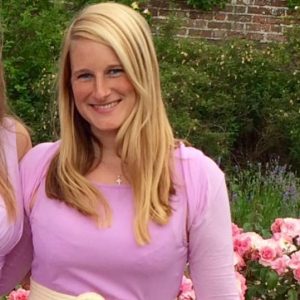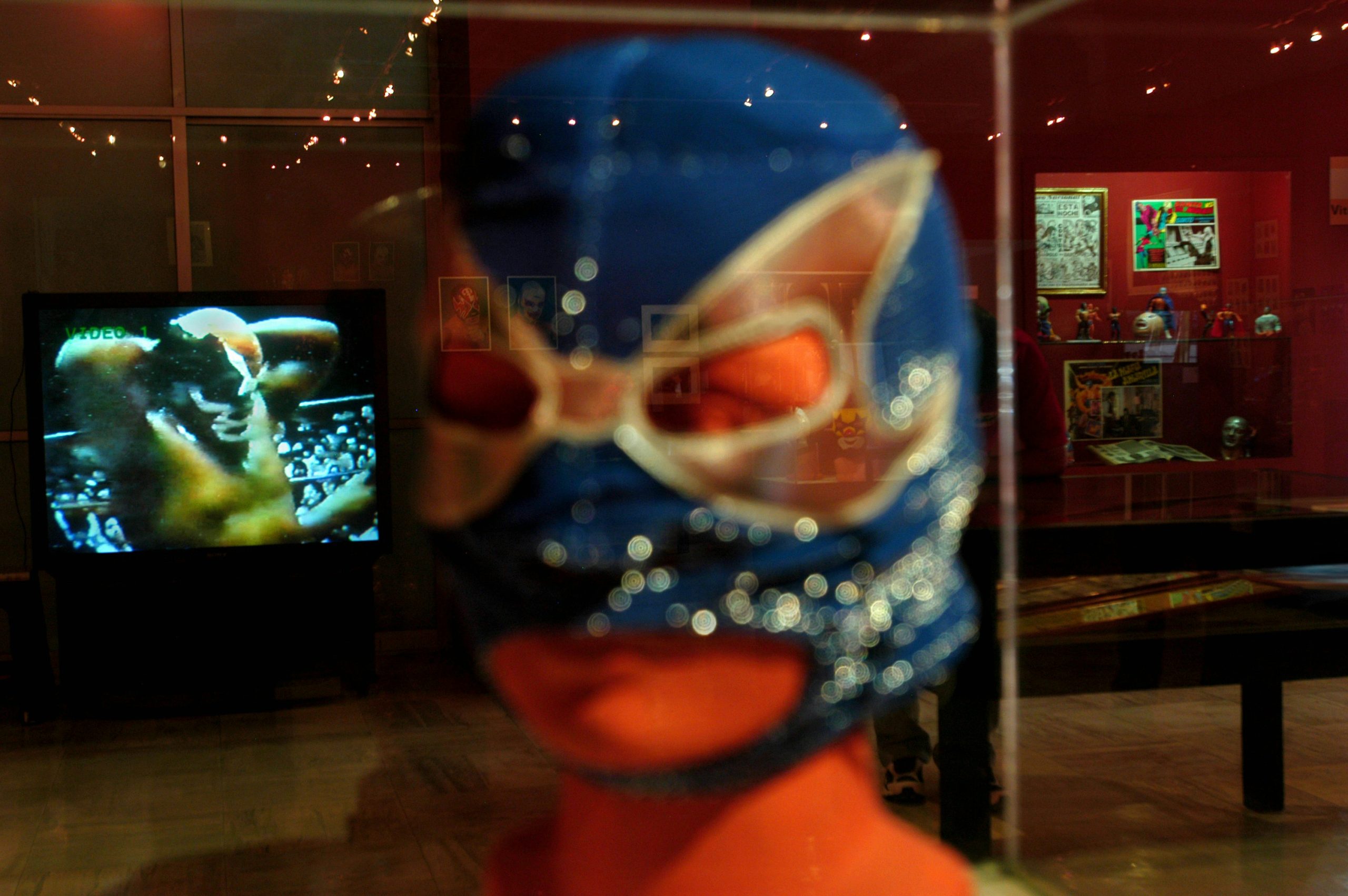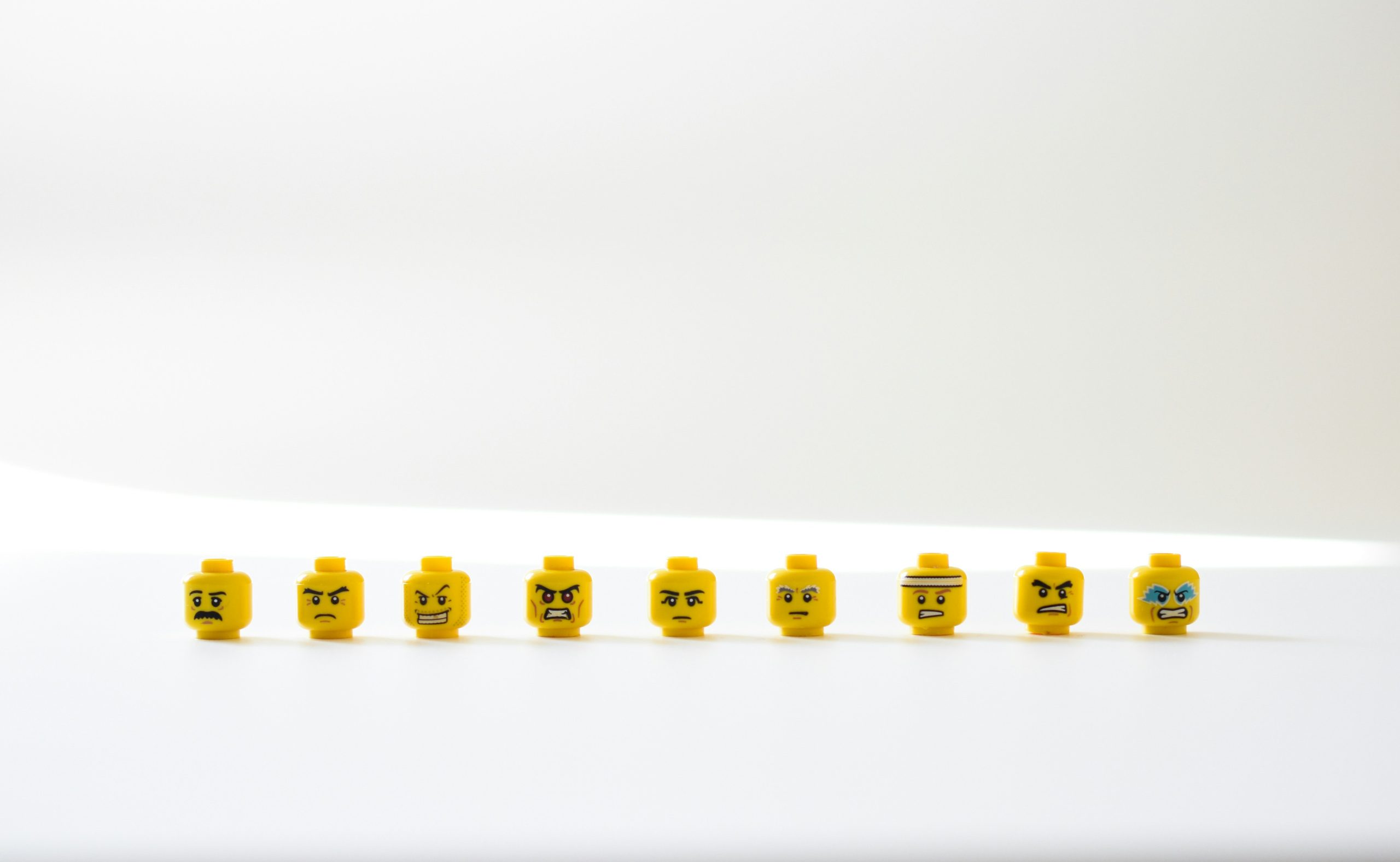At The WXO, we want to connect the dots across the Experience Economy and across the globe – so each week, we’ll be bringing you our round-up of the experiential stories that we think reveal something interesting, relevant or transferrable about the Experience Economy.
Welcome to Experience Radar 52, where we’re seeking out spectral sightings at the Ghostbusters Firehouse in Portland, blissing out to whale music in Miami, and enjoying generative digital art inside a multisensory dome in New York.
1. Meta And L’Oreal Launch Startup Accelerator

While Meta’s Reality Labs metaverse division lost over $3.6 billion in the third quarter of 2022, the company’s founder, Mark Zuckerberg, seems undeterred, and is continuing on his quest to bring his vision of the metaverse to life. In a bid to recruit fresh talent to Web3, Meta has partnered with L’Oréal and French business school HEC Paris to launch a start-up acceleration programme dedicated to creativity in the metaverse. As reported by Vogue Business, the initiative will support start-ups that specialise in 3D production, AR, VR, mixed reality, avatar creation and portability in the user experience.
The venture will be housed in the Meta space within Station F in Paris’s 13th arrondissement, which bills itself as the world’s biggest start-up campus. Applications are now open and will be judged by a jury made up of Meta, L’Oréal and HEC members alongside entrepreneurs and investors. The winning start-ups will be offered mentorship and access to experts and investors during the programme, which is due to run from January to June 2023. “It brings a lot of young talents together. They’re the future. Imagine the massive creative energy that it generates,” said L’Oréal chief digital and marketing officer, Asmita Dubey.
2. Experiential Travel Set To Soar In 2023

With the world finally opening up again after years of lockdown disruptions, 2023 is set to be a big one for the travel industry, which is poised for an experiential travel boom next year. New research from Booking.com has found that adventurers are keener than ever to experience a “radical culture shock” when they travel to bring them out of their comfort zone. It also found travellers are budgeting more tightly, booking off-season and taking advantage of deals. Off-grid travel offering an escape from reality (and technology) is also on the rise, with travel being used a chance to learn survival skills.
“While they may be navigating chaos and embracing contradiction, it’s reassuring for the industry to learn that travel is very much back on the agenda in a more exciting and creative way than ever before. Despite the global uncertainties, the industry will be strengthened by travellers in search of an escape that takes them out of their own reality,” Booking.com’s chief marketing officer, Arjan Dijk, told Travel Weekly. “This is the ideal backdrop for a boom in experiential travel. With micro and niche trends, hobbies and personal passions leading the way, we are likely to see tailored experiences taken to the next level.”
3. The Sound Of (Whale) Music Goes On Tour
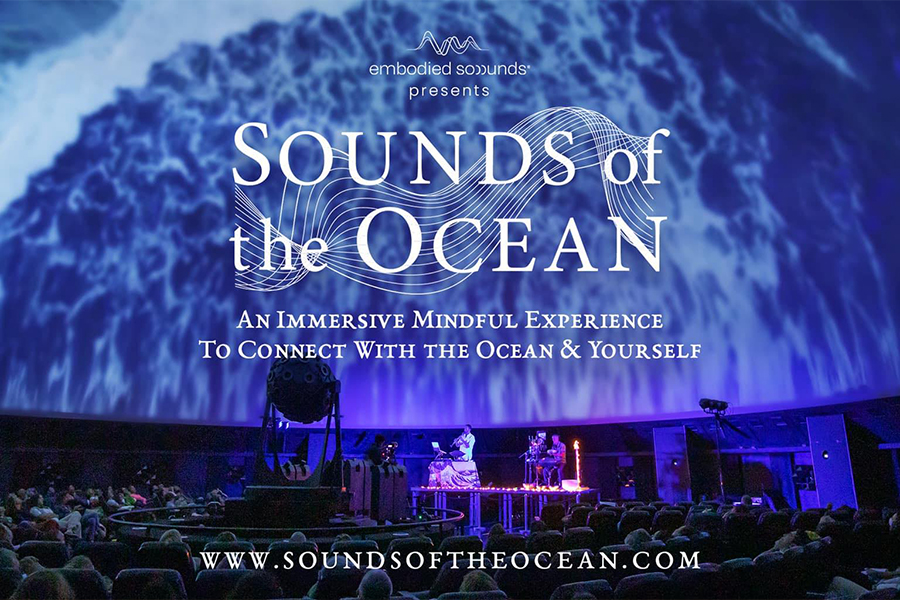
A host of meditative experiences seem to be popping up all over the world at the moment and we’re here for it. One such venture is Sounds of the Ocean, a new multi-sensory immersive experience that takes the audience on a mindful underwater journey through the power of whale and dolphin sounds, immersive art and an original score. As reported by Spa and Beauty Today, the initiative is the brainchild of recording artist, composer and environmentalist Joshua Sam Miller, who created the musical score to accompany the experience.
Uniting a global team of visual artists, musicians, cinematographers, animators and visual FX artists, Sounds of the Ocean can be enjoyed both as a ten-minute film and a 60-minute show featuring a live performance specifically created for planetariums and 360° venues. During the event, which will be coming to the UK, Sharm El-Sheik and Miami, guests watch the film on a giant screen while Miller and his orchestra play everything from the clarinet to the kalimba, with certain shows also featuring a live dance performance from producer Elise Lein.
4. Fancy A Night At The Ghostbusters Firehouse?
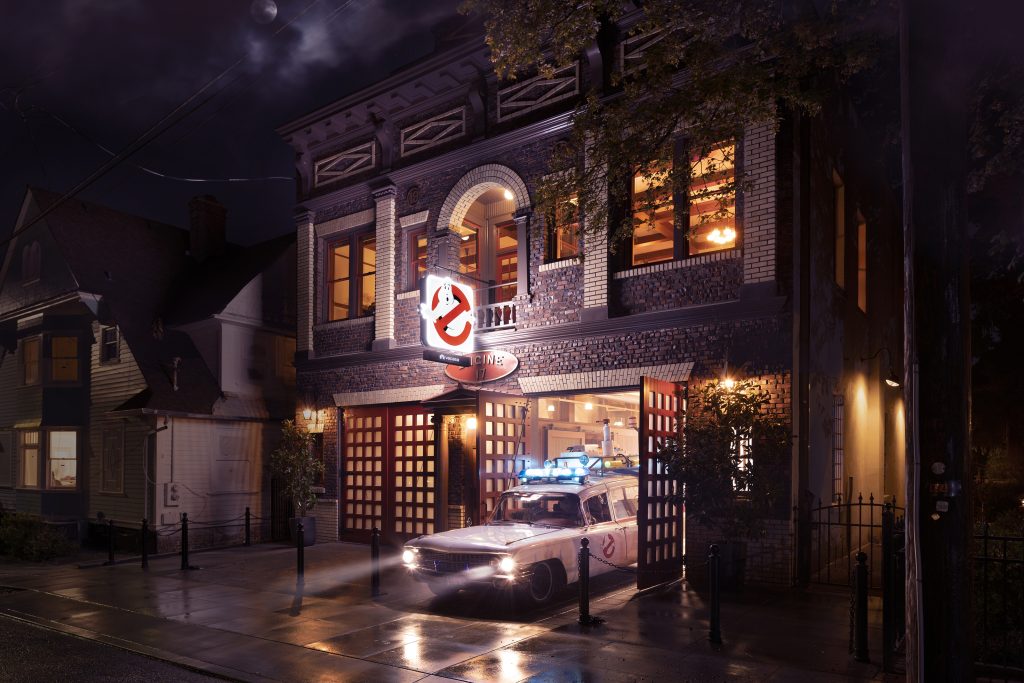
If themed hotels are your jam then the new Ghostbusters Firehouse in Oregon might be right up your alley. Vacasa – Portland’s answer to Airbnb – has launched a spine-tingling new experience in a 1900s firehouse, offering Ghostbusters fans the chance to stay in a reimagined version of the firehouse where Peter, Ray, Egon and Winston set up their ghost-busting operations. During their stay, guests can study the paranormal in a ghost containment system and dark room, where they can put photos through the spectral analyser.
Set up to look like the ghost-busting quartet have just popped out, the rental comes complete with ghostly gadgets, newspaper clippings, khaki uniforms, smoking ghost traps, a P.K.E. meter, proton packs, an aura video-analyser and an ecto-containment unit so guests are fully equipped to capture and analyse their spectral companions and get knee-deep in ectoplasm. The spooky two-bedroom space comes complete with kitchen stocked with StayPuft marshmallows and a games room featuring a pool table and pinball machine.
5. Exploring How Music Influences Emotion
A new exhibition at the Science and Industry Museum in Manchester sets out to explore the science behind music and the unexpected ways it can influence behaviour, emotion and thought processes. Called Turn It Up: The Power of Music, the exhibition is dotted with interactive installations that highlight how music can influence what we buy and how things taste, and how it can be used to boost sporting performance. Research by Brunel professor Costas Karageorghis found that music changes how our muscles perform by priming the nervous system.
Music tricks us into having greater staying power by blocking messages travelling through our afferent nervous system to the brain. In his study, Karageorghis found that up-tempo music can reduce our perceived exertion by up to 12%. The show reveals what tracks top athletes listen to before they compete. Visitors can also take part in a Turing test and see if they can tell the difference between songs written by humans and machines, feast their eyes on a pyrophone organ powered by flames, and explore how new tech continues to push the limits of music.
6. New York Gets A Meditative New Museum

INTER, Manhattan’s latest immersive art experience, challenges visitors to think about the different elements experiences are formed of. As reported by Time Out, the show is more meditation retreat than contemporary gallery by design. The multi-sensory museum in Soho takes guests on a journey into a heightened state of contemplative awareness through a sound bath, light installations and digital art with a side dish of meditation. Aiming to blur the lines between the visitor and their environment, the space questions how memory is experienced.
Inside a giant sensory dome, abstract generative art fills the walls with images representing connection and birth to an ambient soundtrack and 360-degree projections that respond to visitors’ movements, while audio cues help you to stay present. Other activities include a set of mind-bending mirrors challenging identity perceptions, a vibrating gong room and a pristine white gallery space exploring the collective memory of the experience you’ve just had. The ambitious project is the brainchild of artist, musician and meditation teacher Pete Sax, who wants guests to “leave with a simple, connected, joyful feeling”.
7. UC Davis Creates Multisensory Room
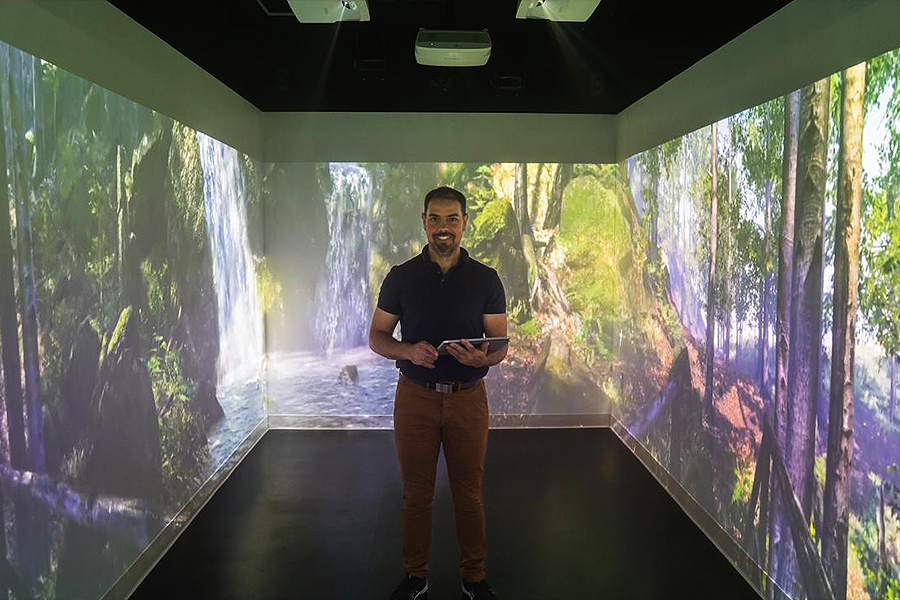
Keen to explore the impact our environment has on sensory perception and the enjoyment of our experiences, the Department of Food Science and Technology at UC Davis in California has built a multisensory immersive room to be used for product development, innovation and research. The room, which will be used to review food, cosmetics and textiles, is equipped with six projectors that are synchronized to display high-definition videos onto the walls of different scenes, from a hiking trail and a restaurant to a beach. The scenery and sound can be changed, scent released and heating controlled from a handheld tablet.
The project is being spearheaded by sensory scientist Julien Delarue, who hopes the room will lead to more accurate consumer product reviews. The goal is to immerse participants in different environments and deliver an experience that’s as close to real-life as possible, rather than a sanitised lab. “If I give you a sample in a lab, you’ll give an answer like a test. If I immerse you, you’ll spend more time enjoying the experience and will give a better account of your experience,” says Delarue, who will use his findings to enhance food product design.


